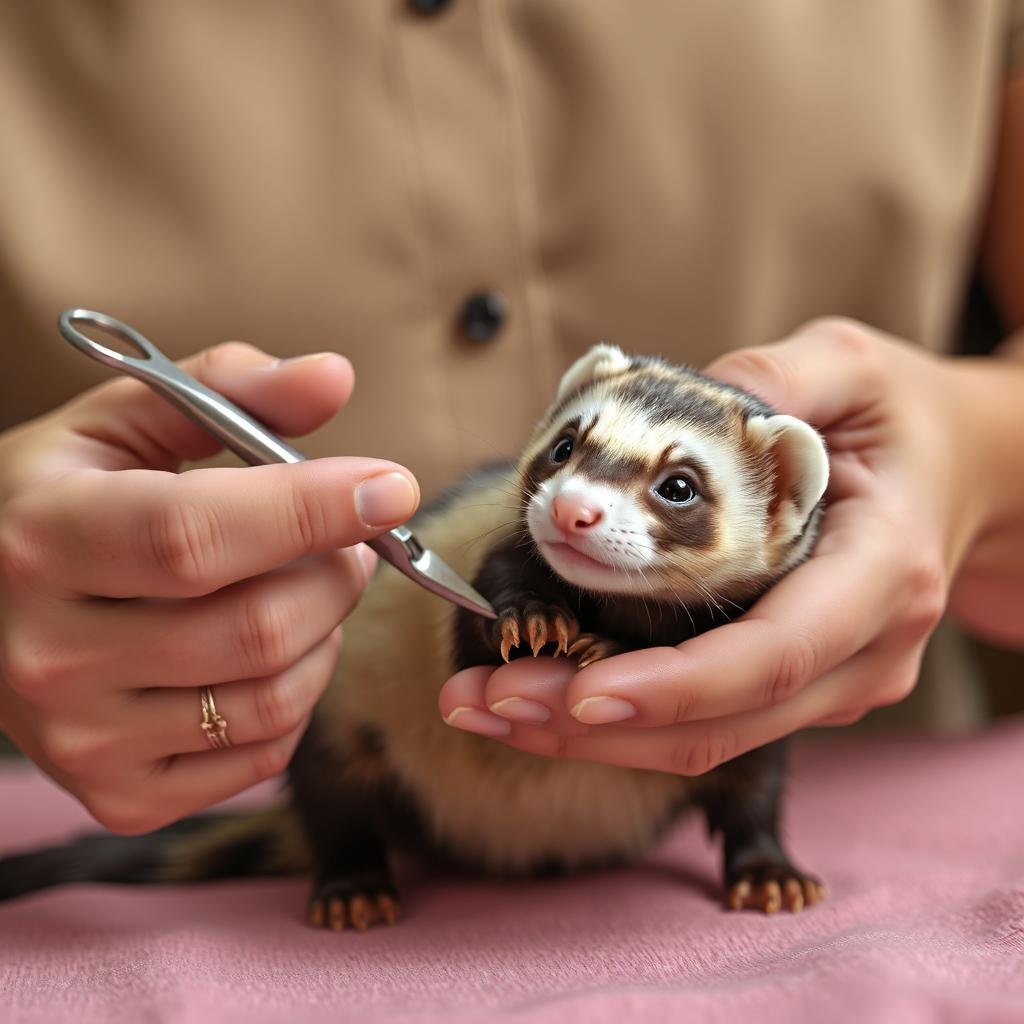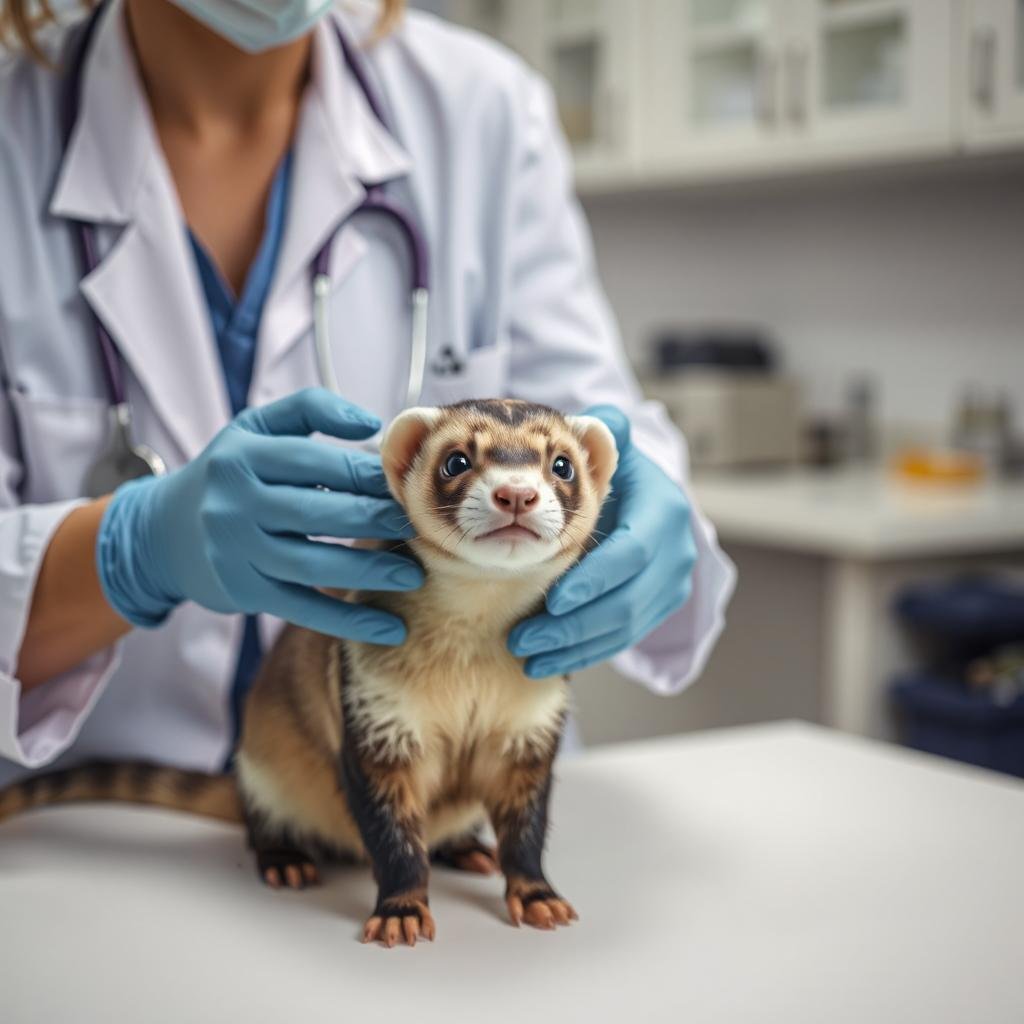Are you considering adopting a ferret or already sharing your home with one of these quirky, playful animals? Ferrets make wonderful pets for the right people, offering plenty of personality packed into a small, furry package. But like all pets, ferrets have unique needs and care requirements. Without proper care and attention, a ferret can easily become stressed, ill, or even develop behavioral problems. Luckily, with a bit of preparation and knowledge, you can raise a happy, healthy ferret who will be your delightful companion for years to come. In this guide, we’ll walk you through seven essential tips to ensure your ferret lives a joyful, enriched life.
Why These Tips Matter?
Are you ready to become the best ferret parent ever? Learn the top 7 ferret care tips that cover everything from nutrition and play to grooming and vet visits. Keep your fuzzy friend healthy, safe, and full of energy with this ultimate care guide.
1. Provide a Safe and Spacious Cage

Ferrets are extremely active and curious animals. Their living environment plays a major role in their health and happiness. A good ferret cage should be tall and spacious, ideally with multiple levels, ramps, and plenty of soft bedding. Make sure the cage is well-ventilated and securely latched, as ferrets are notorious escape artists. Wire floors should be avoided or covered with fleece to prevent foot injuries. Inside the cage, offer your ferret places to hide, sleep, and explore. Hammocks, tunnels, and nesting boxes can help create a more stimulating and comfortable environment.
2. Feed a Balanced, High-Protein Diet

Unlike dogs or cats, ferrets are obligate carnivores, which means they require a diet that is predominantly made up of meat. Their bodies are designed to digest animal proteins and fats—not plant matter. Opt for high-quality ferret kibble that lists meat as the first ingredient and contains a minimum of 30-40% protein and 15-20% fat. Some owners choose to feed their ferrets raw meat or whole prey diets, but this should be done with careful research and under the guidance of a vet. Avoid sugary treats, fruits, grains, and dairy, as these can upset their digestive system and lead to long-term health issues.
3. Make Daily Playtime a Priority

Ferrets are energetic and intelligent creatures who need daily exercise to stay fit and happy. Letting them out of their cage for at least 2 to 4 hours a day is essential. Designate a “ferret-proofed” space where they can safely play, explore, and satisfy their curiosity. This space should be free from small holes, cords, and anything they could chew or swallow. Toys, tunnels, and soft balls are great for mental stimulation. You’ll quickly discover that playtime is when their quirky personalities really shine.
4. Ferret-Proof Your Home

If your ferret will have free roam of your house or specific rooms, ferret-proofing is a must. These little adventurers can squeeze through openings as small as a couple of inches, so check behind furniture, appliances, and cabinets for possible escape routes. Keep wires, rubber items, foam, and anything chewable or toxic out of reach. Block off access to vents, drains, and recliners. Child-proof locks and cord covers can be your best friend when it comes to keeping your pet safe. Remember, a curious ferret will explore every nook and cranny.
5. Keep Up with Hygiene and Grooming

Cleanliness is crucial for your ferret’s health. Their litter box should be scooped daily and changed frequently to avoid odors and bacteria buildup. The entire cage should be cleaned weekly with a pet-safe disinfectant. Grooming-wise, ferrets are relatively low maintenance. Bathing should be done sparingly—no more than once a month—to prevent drying out their skin. Use a mild, ferret-safe shampoo. Their nails grow quickly and should be trimmed every two weeks to prevent overgrowth and injury. You can also brush their fur and clean their ears as part of your routine.
6. Regular Vet Visits Are a Must

Just like dogs and cats, ferrets require regular medical attention. Schedule yearly wellness checkups with a veterinarian who specializes in exotic pets. Ferrets should be vaccinated against rabies and distemper—two potentially deadly diseases. It’s also important to spay or neuter your ferret if it hasn’t been done already. Regular vet visits help detect issues like adrenal disease, insulinoma, or dental problems early, increasing your pet’s quality and length of life.
7. Offer Enrichment and Socialization

Ferrets are highly social animals who thrive on attention and companionship. Interacting with your ferret daily helps strengthen your bond and prevents boredom-related behaviors like biting or digging. Provide a rotating selection of toys and interactive games to keep things fresh. Tunnels, squeaky toys, and puzzle feeders are excellent for mental stimulation. Many ferrets do better with a companion, so consider adopting a second ferret if your lifestyle allows it. Two ferrets often bond deeply and entertain each other for hours.
Conclusion:
Owning a ferret is a joyful and rewarding experience, but it also requires dedication, knowledge, and love. By following these seven care tips, you’re taking a big step toward providing your furry friend with a life full of comfort, excitement, and affection. Whether you’re preparing your home, researching the right diet, or scheduling your next vet visit, each action you take brings your ferret one step closer to a healthy and fulfilling life. Embrace the fun and chaos—they’ll reward you with endless laughter and love.
FAQs
1. How long do ferrets live?
Ferrets typically live between 6 to 10 years, though some can live longer with proper care and regular veterinary checkups.
2. Can ferrets be litter trained?
Yes, ferrets can be trained to use a litter box, especially if you start when they’re young. Consistency and positive reinforcement go a long way.
3. Do ferrets need vaccines?
? Absolutely. Your ferret should receive vaccines for rabies and distemper. These are vital for their health and protection.
4. What do ferrets eat?
They require a high-protein, high-fat diet with minimal carbohydrates. Ferret-specific kibble or raw meat-based diets are ideal. Avoid sugary, starchy, or plant-based foods.
5. Are ferrets good with kids?
Ferrets can be great companions for older children who understand how to handle them gently. Supervision is key, especially around younger kids.
